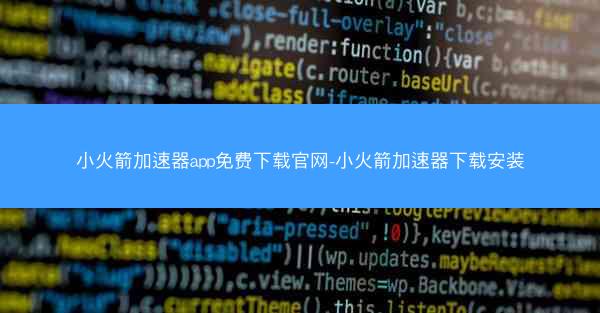
英语单词 leave 的基本含义是离开,表示从某个地方或某个状态中退出或移动到另一个地方或状态。这个单词在英语中非常常用,可以用于各种语境中。
二、动词用法
作为动词,leave 有多种用法,以下是一些常见的用法:
1. 离开某个地方:
- I will leave the office at 5 PM.(我将在下午5点离开办公室。)
- She left the party early because she felt tired.(她因为感到疲倦,所以早早地离开了派对。)
2. 留下某人或某物:
- Please leave the door unlocked.(请把门留锁上。)
- Don't leave your books on the table.(不要把书留在桌子上。)
3. 使某人或某物处于某种状态:
- The rain left the ground wet.(雨水使地面湿了。)
- The teacher left the students with an assignment.(老师给学生留下了一个作业。)
三、名词用法
Leave 也可以作为名词使用,表示请假、留言或遗弃等含义。
1. 请假:
- He took a leave of absence for a month.(他请了一个月的假。)
- She needs to take a medical leave.(她需要请一个病假。)
2. 留言:
- Please leave a message if I'm not home.(如果我不在家,请留言。)
- He left a note on the door.(他在门上留了一张便条。)
3. 遗弃:
- The dog was left abandoned in the street.(那只狗被遗弃在街上。)
- The child was left without parents.(那个孩子被父母遗弃了。)
四、短语搭配
Leave 与其他词汇搭配使用时,可以形成许多短语,以下是一些常见的搭配:
1. leave behind:
- Don't leave behind any personal belongings.(不要留下任何个人物品。)
- He left behind a legacy of innovation.(他留下了一笔创新的遗产。)
2. leave out:
- Don't leave out any details.(不要遗漏任何细节。)
- She left out the sugar when she made the cake.(她做蛋糕时忘了放糖。)
3. leave for:
- We will leave for the airport at 6 AM.(我们将在早上6点出发去机场。)
- He left for his hometown last week.(他上周回到了家乡。)
五、时态和语态
Leave 的时态和语态变化如下:
1. 现在时:
- I leave, you leave, he/she/it leaves, we leave, they leave
- I am leaving, you are leaving, he/she/it is leaving, we are leaving, they are leaving
2. 过去时:
- I left, you left, he/she/it left, we left, they left
- I had left, you had left, he/she/it had left, we had left, they had left
3. 进行时:
- I am leaving, you are leaving, he/she/it is leaving, we are leaving, they are leaving
4. 完成时:
- I have left, you have left, he/she/it has left, we have left, they have left
- I had left, you had left, he/she/it had left, we had left, they had left
5. 被动语态:
- The letter was left on the desk.
- The child was left without parents.
六、口语和书面语
Leave 在口语和书面语中的使用有所不同:
1. 口语:
- I'm leaving for the store.(我要去商店。)
- Don't leave the lights on.(别让灯亮着。)
2. 书面语:
- The employee has been granted leave of absence.(该员工已被批准休假。)
- Please leave a comment in the feedback section.(请在反馈部分留下评论。)
七、文化和语境
Leave 在不同的文化和语境中可能有不同的含义和用法:
1. 英国文化:
- 在英国,leave 通常指离开某个地方或状态。
- I'm leaving for London tomorrow.(我明天要去伦敦。)
2. 美国文化:
- 在美国,leave 除了表示离开,还可以表示留下或剩下。
- I left some money on the table.(我留下了一些钱在桌子上。)
3. 商务语境:
- 在商务语境中,leave 通常指请假或离职。
- He has requested leave for two weeks.(他请求了两周的休假。)
八、同义词和反义词
Leave 有许多同义词和反义词,以下是一些例子:
1. 同义词:
- depart, go, exit, depart from, withdraw
2. 反义词:
- stay, remain, keep, continue, linger
九、例句分析
以下是一些包含 leave 的例句,以及对其含义的分析:
1. 例句:
- She left her keys at home.\
- 分析:这个句子中的 leave 表示遗忘,即她把钥匙忘在了家里。
2. 例句:
- The teacher left the students with a difficult question.\
- 分析:这里的 leave 表示留下,即老师给学生留下了一个难题。
十、语法结构
Leave 在句子中的语法结构如下:
1. 主语 + leave + 宾语:
- I leave the room.(我离开房间。)
2. 主语 + leave + 宾语 + 状语:
- She will leave the office at 5 PM.(她将在下午5点离开办公室。)
3. 主语 + leave + 宾语 + 介词短语:
- Don't leave your books on the table.(不要把书留在桌子上。)
十一、常见错误
在使用 leave 时,常见的错误包括:
1. 混淆时态:
- I have left my wallet at home.(我忘记了我的钱包在家里。)
- 正确的句子应该是 I left my wallet at home.(我把钱包忘在家里了。)
2. 误用语态:
- The letter was left on the desk by me.(我把信留在桌子上。)
- 正确的句子应该是 I left the letter on the desk.(我把信留在桌子上。)
Leave 是一个多功能的英语单词,具有丰富的含义和用法。从基本的离开到更复杂的含义,如请假、留言和遗弃,leave 在日常交流中扮演着重要角色。通过了解其不同用法和搭配,我们可以更准确地使用这个单词,避免常见的错误,并提高英语水平。




















